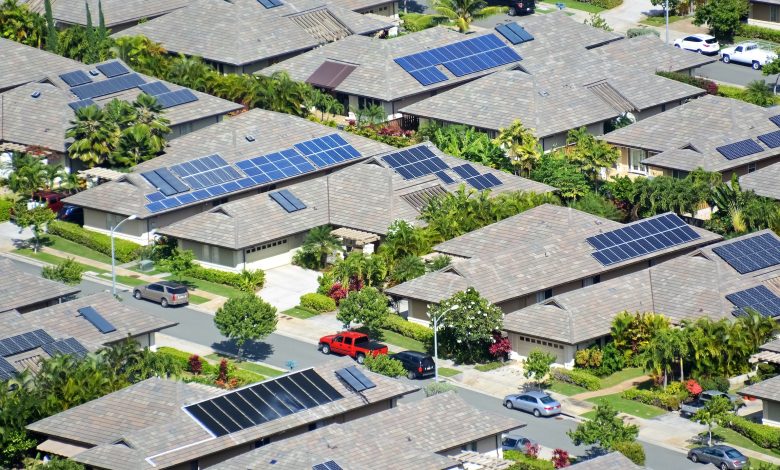5 Factors That Affect Solar Panels’ Performance

Solar energy has been around even before civilisation. Before there was electricity, people relied on the sun for survival. In 1839, they discovered the photovoltaic effect, which led physicists and scientists to develop solar panels to utilise solar energy.
Fast forward to today, and we’re still utilising fossil-fueled electricity. The thing about fossil fuels is that they contribute to global warming. The sudden shifts in the weather are one of the effects of fossil fuel usage, too. Thankfully, we’re now slowly integrating clean energy resources.
Solar panels are one of the effective methods to use solar energy. Over the last decade, their popularity has increased. A lot of well-known businesses are now using solar energy. In the U.S. and Australia, residential solar users have grown. According to Australia’s Clean Energy Council, almost 3 million households enjoy the benefits of solar in their country.
Despite its growth and advantages, people still have doubts about its efficiency. Even though studies and users have proven how reliable solar panels are, a lot still have hesitations.
In this article, let’s discuss the five factors that affect solar panels’ performance.
1. Buildings, trees, etc. that can block or shade the solar panels
The light emitted by the sun is the energy that solar panels produce. There’s no energy to produce if the light is unavailable. Solar panel manufacturers always recommend a shade-free environment before solar panel installation.
If your property is surrounded by high-rise buildings or tall trees, your solar panels’ efficiency might decrease. According to solar manufacturers, shading can reduce the efficiency of panels by more than half.
If you’re planning to shift to solar panels, check your surroundings first. If your property is surrounded by high-rise buildings, trees, or other properties that shade yours, your solar panels’ performance will surely be affected.
2. The number and size of your solar panels
Another factor that affects solar panels’ performance is their number and size. Typically, solar manufacturers suggest a property to have at least 20 to 24 panels to cover its electricity needs. Of course, your usage and property size matters, too.
If you’re thinking that you can completely go off-grid by installing 5 panels, that’s not true. Usually, one 0.3 watts solar panel can produce 240 volts. Did you know that a typical vacuum consumes 1,000 watts of electricity in an hour? Now, if you use all of your home appliances all at once, do you think 5 solar panels are enough?
The answer is: no. If you expect to completely utilise solar energy, you’ll need at least 20 or more solar panels. Also, you should go for the standard panel size, so it can cover all your electricity needs. If you only install 5 panels, you can’t expect it to be as efficient as it is supposed to be. Before you purchase any solar panels, make sure to ask your electricity provider about your energy usage for the last 5 years for reference.
3. Weather and climate
One of the common misconceptions about solar panels is that they don’t work in winter. Solar manufacturers and users have proven that this misconception is a myth. As long as there is daylight, solar panels can produce energy.
Another weather-related misconception is that solar panels work best in tropical countries. Surprisingly, this myth seems good enough to be true. As we know, solar panels collect the sun’s light. Since tropical countries are exposed to the sun’s heat all year long, why wouldn’t solar panels work well there?
It’s because the cells of solar panels need specific temperatures to work optimally. Even though the sun is present all year long in tropical countries, its heat can damage the panel’s system. Also, it reduces its efficiency.
On the other hand, winter snow can improve a panel’s efficiency because the snow has a high radiance. Its radiance can increase the amount of sunlight that reaches the system as long as it does not block it.
4. Positioning of the panels
Another factor that can either reduce or increase solar panels’ efficiency is their positioning. By now, you can tell that solar panel installation comes with a lot of requirements and specifications. A property’s roof orientation is also one of them.
Even though panels can work in a flat roof position, solar manufacturers highly recommend a slanted orientation. They say that ideally, the panels should be facing south — for more sun exposure. The suggested orientation for the panels should be at 30 to 40 degrees.
Before any solar panel installation, the manufacturer will assess your roof. If you have a flat one, they can adjust the positioning to optimise panel performance. Solar panels can’t just be placed anywhere you want to. It’s best to position them accordingly, so you get to maximise their purpose.
5. Having solar batteries, inverters, and more are helpful, too.
One fact about solar panels is that the energy they produce is direct current. Did you know that the energy we utilise is alternating current? Now, how are solar panels compatible with home use? The answer is through the use of inverters.
For you to utilise solar energy, you need an inverter. An inverter will convert the direct current produced by the panels into alternating current — making it compatible for appliance and home use.
Also, since solar panels cannot produce energy at night, having a solar battery would be helpful in case of emergencies. If you want to store the excess energy produced by your panels, having a solar battery is the answer.
Aside from these, solar maintenance should never be neglected, either.
The 5 points I discussed are just some of the common factors that affect solar panels’ performance. On top of all these, you should also never neglect panel maintenance. Keep in mind that solar panels are a great investment; they’re made to last for decades.
Aside from these factors, maintaining your solar panels will help you maximise their performance. Also, by having it regularly checked and serviced, you’ll get to make the most out of your investment. As you follow these 5 factors, keep in mind that maintenance should be prioritised at all times, too.
About the author:
Bianca Banda is a writer for Penrith Solar Centre, an Australian solar company that advocates better energy resources to improve the quality of life on Earth.




